#wordsworth house
Explore tagged Tumblr posts
Text






I wandered lonely as a cloud That floats on high o'er vales and hills, When all at once I saw a crowd, A host, of golden daffodils; Beside the lake, beneath the trees, Fluttering and dancing in the breeze. —William Wordsworth
House of the Dragon (2022-) From (2022-) Atonement (2008) Shōgun (2024-) His Dark Materials (2019-2022)
#filmedit#tvedit#filmandtvedit#cinemapix#house of the dragon#hotd#hotdedit#shogun#shōgun#shōgunedit#from epix#his dark materials#atonement#junkfooddaily#dailyflicks#televisiongifs#cinematv#filmgifs#william wordsworth#film scenery#nature#alicent hightower#rhaena targaryen#mary malone#toda mariko#briony tallis#boyd stevens
121 notes
·
View notes
Text

Ann Tyson's House - Hawkshead village,Cumbria
This house is where William Wordsworth lodged when he attended the grammar school in Hawkshead, it is now a guesthouse - nice hanging baskets.
#Ann Tyson's House#William Wordsworth#poet#Hawkshead village#Cumbria#England#guesthouse#flowers#old house#old
6 notes
·
View notes
Note
Green, yellow and a tint of blue for the moot meme, Lumi the Beloved
⭐ which mutual am I? ⭐
a poem for crys:
i see your yellow, your green, and your blue, and twofold do i return them back to you! 💗
1 note
·
View note
Text

I wandered lonely as a cloud That floats on high o'er vales and hills, When all at once I saw a crowd, A host of golden daffodils; Beside the lake, beneath the trees, Fluttering and dancing in the breeze.
Continuous as the stars that shine and twinkle on the Milky Way, They stretched in never-ending line along the margin of a bay: Ten thousand saw I at a glance, tossing their heads in sprightly dance.
The waves beside them danced; but they Out-did the sparkling waves in glee: A poet could not but be gay, in such a jocund company: I gazed—and gazed—but little thought what wealth the show to me had brought:
For oft, when on my couch I lie In vacant or in pensive mood, They flash upon that inward eye Which is the bliss of solitude; And then my heart with pleasure fills, And dances with the daffodils.
#William Wordsworth#daffodils#aram#house#one#united#all night long#eyes#everywhere#relief#now#you see me#unity#is#restored#good#music#arms#cross#freeze#time#stands#still#ramadan#z#cry#consolation#i like you a lot#thank you#cosmic
1 note
·
View note
Text
Things read in May
Essays & Articles:
Ursula K. Le Guin on Being A Man
Investigating parents of transgender youth has agency on ‘brink of collapse,’ staff warns
Five Indigenous Speculative Fiction Authors You Should Be Reading
DECOLONIZING SCIENCE FICTION AND IMAGINING FUTURES: AN INDIGENOUS FUTURISMS ROUNDTABLE
Using Dogs As A Tool of Racial Oppression
Rings of Power: The new hobbits are filthy, hungry simpletons with stage-Irish accents. That’s $1bn well spent
First case of HIV cure in a woman after stem cell transplantation reported at CROI-2022
The Trees That Miss The Mammoths
NOPE’S SCIENCE CONSULTANT REVEALS THE NAME AND INSPIRATION FOR THE MOVIE’S ALIEN
Reflections on the Poetry of Eavan Boland
The dire state of trans healthcare in Ireland
How Letterkenny Got Indigenous Representation So Right
Einstein's Parable of Quantum Insanity
Surgical amputation of a limb 31,000 years ago in Borneo
Most Transgender Children Stick With Gender Identity 5 Years Later: Study
Were you a ‘parentified child’? What happens when children have to behave like adults
Fear of a Black Hobbit
It’s a ‘Full-Contact’ Haunted House. What Could Go Wrong?
The Craft: How a Teenage Weirdo Based on a Real Person Became an Icon
Remember When Multiplayer Gaming Needed Envelopes and Stamps?
‘We’ll Never Make That Kind of Movie Again’ An oral history of The Emperor’s New Groove, a raucous Disney animated film that almost never happened.
5 Incredible Sagas of Fandom Scams and Deception
I Used to Love British Period Dramas. Now I See Them as Colonial Propaganda
Why gender essentialism is a white supremacist ideology
Liberating Our Homes From the Real Estate–Industrial Complex
You Don’t Have To Be Pretty – On YA Fiction And Beauty As A Priority
Ten Years Later, There’s Still Nothing Like Tarsem Singh’s The Fall
Tolerance is not a moral precept
Scottish Poet and Publisher Derick Thomson 'Transformed' Gaelic Poetry
Poetry:
The Universe, as in One Last Song for the Lonely Hearts by Michelle Hulan
An Ordinary Evening in New Haven by Wallace Stevens
Heaven by George Herbert
Return from Death by Derick Thomson
Coffins by Derick Thomson
Chemin De Fer by Elizabeth Bishop
Yes, It Was The Mountain Echo by William Wordsworth
The Man and the Echo by William Butler Yeats
The Most of It by Robert Frost
Eros Turannos by Edwin Arlington Robinson
Books:
The Dark Yule by R. M. Callahan
The Invasion by K. A. Applegate
The Whisper by Aaron Starmer
House of Leaves by Mark Z. Danielewski
Miss Iceland by Auður Ava Ólafsdóttir
#tcp#this is late bc i just kept forgetting to post it all lol#an open window#articles#essays#poetry
503 notes
·
View notes
Text
From The Library of Anne Rice (Part 1)
A list of books owned by Anne Rice including annotation information taken from auction listings at Bonham's, October 2024. Will continue in Part 2.

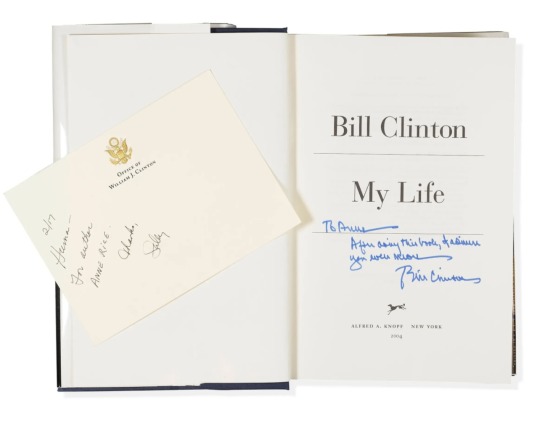
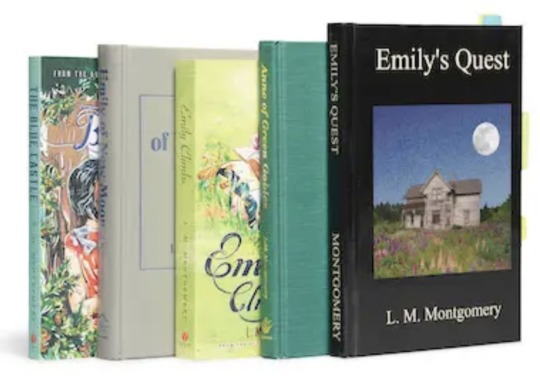

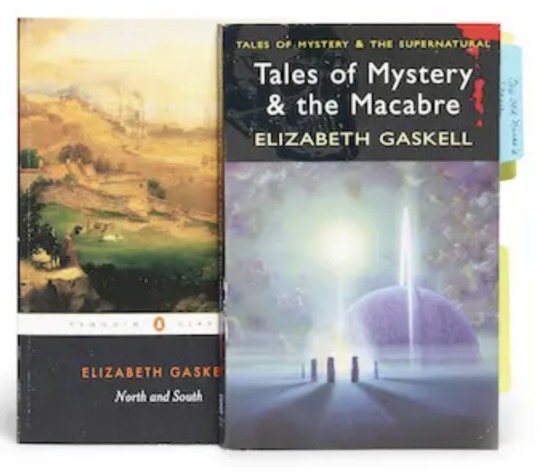
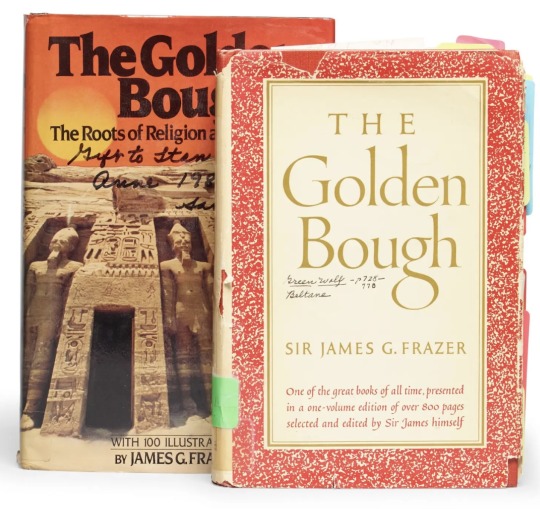
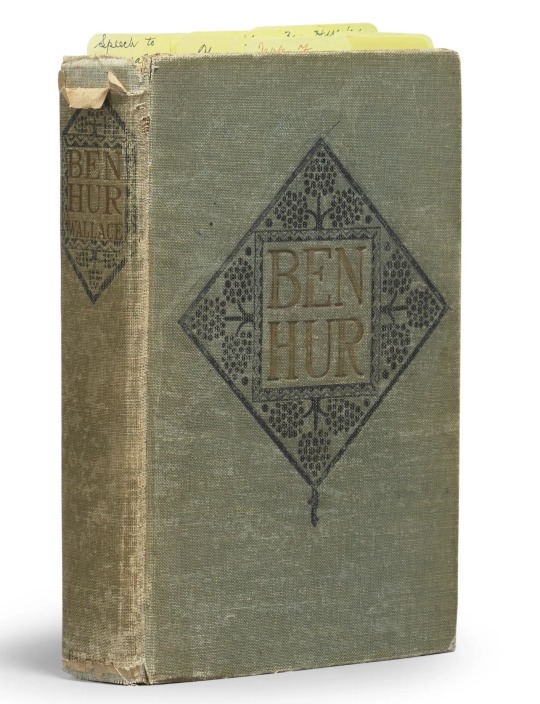
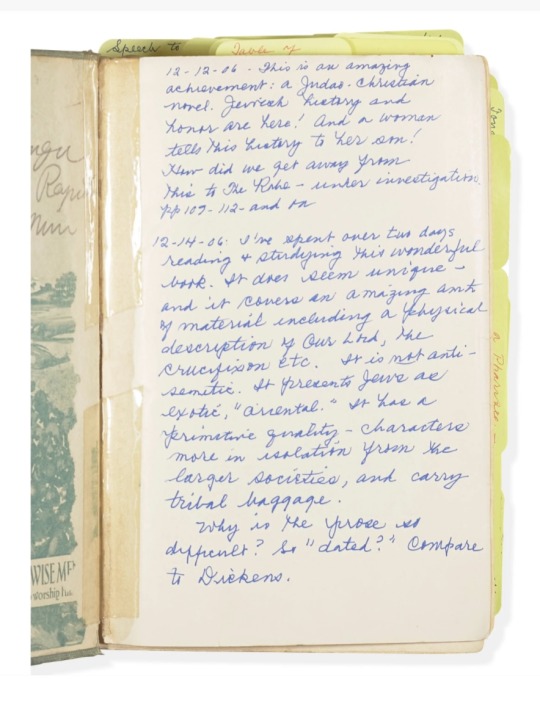
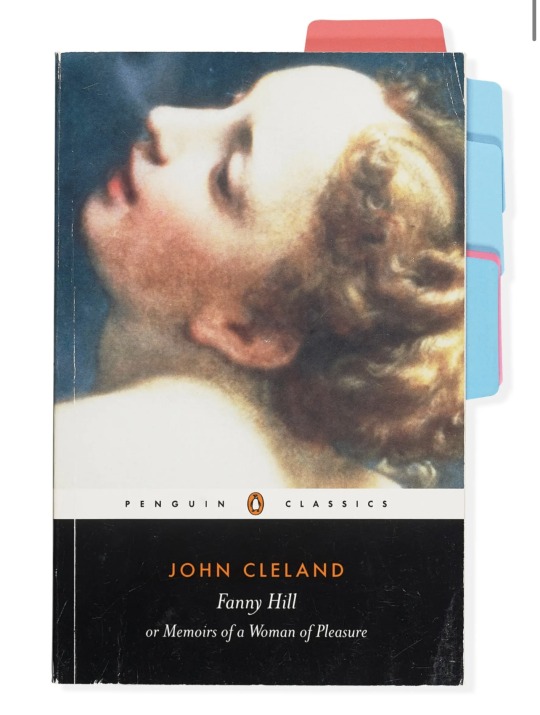
Frazer, James G. The Golden Bough: A Study in Magic and Religion (abridged edition).New York: MacMillan Publishing Co., 1963. She writes on the flyleaf in June of 2012: "When I bought this book I don't know. I know I read it or a copy of it in the 1980s when writing The Vampire Lestat. It is essential to me." On the jacket spine she has added "Sacred!"
Frazer, James G. The Golden Bough: A Study in Magic and Religion. 1981. Marked on the cover, "Gift to Stan from Anne 1985 / Save Always, AR," and internally reads in Stan's handwriting: "A gift to me from Anne because I've never read it."
Gaskell, Elizabeth. Tales of Mystery & the Macabre. Wordsworth edition, 2007. bears Rice's ownership signature to title page ("Anne Rice / May 29, 2012 / The Desert") and is tabbed and annotated throughout.
Gaskell, Elizabeth. North and South. Penguin Books, 2000. bears her ownership signature on the title page.
Hemingway, Ernest. For Whom the Bell Tolls. New York: Charles Scribner's Son, 1940. Original beige cloth stamped cover and spine, in facsimile dust jacket. First edition with the Scribner's "A" on the copyright page. With Post-it note to front pastedown indicating that the book was a gift "From Becket and Christina / Christmas / 2012."
King, B. B. & David Ritz. Blues All Around Me: The Autobiography of B.B. King. New York: Avon Books, 1996. First edition, inscribed to "To Anne / All the best to you / B.B. King / 10-18-96."
Montgomery, L.M. Anne of Green Gables. Cutchogue, NY: Buccaneer Books, 1976. Anne Rice ownership signature dated February 7, 2015, Palm Desert. Annotated on front pastedown; "It's immediately a pleasure, and making me want to write."
Montgomery, L.M. Emily's Quest. Oxford City Press, 2009. Anne Rice ownership signature dated February 21, 2015; annotated and tabbed.
Montgomery, L.M. Emily Climbs. Sourcebooks, 2014. Anne Rice ownership signature dated February 12, 2015.
Montgomery, L.M. Emily of New Moon. Ameron House, c.2015. Anne Rice ownership signature dated February 6, 2015, inscribed: "Reading the paperback and loving it so much I had to have a hardcover."
Montgomery, L.M. The Blue Castle. Sourcebooks, 2011. Anne Rice ownership signature dated May 12, 2015 to title page.
Puzo, Mario. The Godfather. New York: Putnam, 1969. Book club edition. On May 26 and 27, 2013, she writes, "Badly need this, Studying in detail" and on page 74 she writes, "Note how easily it flows." She has great praise for the nimbleness of the novel's p.o.v. and is often asking herself "how can I learn from this?" On p 225 she writes, "This is a most impressive piece of work and is masterly. Again I marvel at vocabulary, tone, and placement—organization of the book. I fight OCD as I write, I've come to see that, and this helps me to see what this novel accomplishes. Presenting the Don as a 'great' man, a 'genius,' without apology is a conscious approach that is so powerful."
Puzo, Mario. The Godfather. Another copy, later edition, lacking jacket. With Anne Rice's ownership signature.
Puzo, Mario. The Godfather Papers and Other Confessions. London; William Heinneman, 1972.
Puzo, Mario. The Fortunate Pilgrim. New York: Random House, 1997. Anne Rice ownership signature.
Wallace, Lew. Ben-Hur: A Tale of the Christ. New York and London: Harper & Brothers, 1908. Anne Rice re-read this copy of Ben-Hur in 2006, a used copy she picked up somewhere, leaving detailed marginalia throughout and summing up her thoughts on the first flyleaf: "12-12-06: This is an amazing achievement: a Judeo-Christian novel. Jewish history and honor are here! And a woman tells this history to her son! How did we get away from this to The Robe ... 12-15-06: I've spent over two days reading & studying this wonderful book. It does seem unique—and it covers an amazing amt of material including a physical description of Our Lord, the crucifixion, etc. It is not anti-semitic. It presents Jews as exotic, 'oriental.' It has a primitive quality ... why is the prose so difficult? so 'dated'? Compare to Dickens." Rice's notes in the margin often compare the novel to (presumably the 1959 version of) the film, finding the novel superior in every way, and commenting more than once on its structural similarities to Dickens: "the whole spectacle and the co-incidence" (p 166).
Cleland, John. 1709-1789. Fanny Hill or Memoirs of a Woman of Pleasure. New York: Penguin Books, 1985. Annotated and with ownership signature to the title page: "Anne Rice / January 2014 / Palm Desert." Rice underscores Cleland's descriptions of bodies and physical acts, and in particular, wonders about the novel's p.o.v.: on p 108 she writes in the margin, "Is this a man's view? A gay man? An author who is male and female?"
Clinton, Bill. Born 1946. My Life. New York: Alfred Knopf, 2004. Jacket spine with label "From the library of Anne Rice" laid down to tail. First edition, inscribed on the title page, "To Anne—After doing this book, I admire you even more—Bill Clinton." with: a note on the Office of William J. Clinton letterhead: "2/17 —Huma—For author ANNE RICE.—Thanks, Sally." When Clinton published his memoir in 2024, Rice was one of the VIPs to receive a presentation copy, in which he expresses his admiration for her work after having written a book of his own.
Bellman, Henry. 1882-1945. Kings Row. New York: Simon and Schuster, 1943. Annotated and with ownership signature to front free endpaper: "Anne Rice / June 27, 2013 / Palm Desert." Rice has carefully read and annotated this copy, complementing the writing (particularly when Bellamann writes about Father Donovan) and adds a long note on the rear pastedown: "Pages & pages of this book are about the mind—about how the mind learns, expands, grows, experiences." Sometimes her comments are in conversation with the text, as when, on p 153, she underlines the town of Auvergne and writes "Auvergne, what a coincidence! As I plan a trip there and write about Lestat!"
Dickens, Charles. David Copperfield. New York: Penguin Classics, 2014. With ownership signature of Anne Rice dated June 11, 2018, tabbed and annotated throughout. On the preliminary leaf of Copperfield, Rice writes, "Again with my beloved David, and my beloved Dickens. I have just read Claire Tomalink 'The Invisible Woman' and her later bio of Dickens. I'm writing my new novel in my head."
Dickens, Charles. Great Expectations. New York: Penguin Classics, 2008. Signed and dated June 15, 2018, tabbed and annotated throughout.
Rawlings, Marjorie Kinnen. South Moon Under. New York, London: Charles Scribner's Sons, 1933 (undated later facsimile edition).
Mitchell, Margaret, Gone With the Wind. New York: [Simon and Schuster], 2011. Rice reread this copy in March of 2015, tabbing dozens of pages and commenting in the margins.
Tolstoy, Leo. War and Peace. New York: Alfred Knopf, 2007. The first date on this copy of War and Peace is June 30, 2010, and Rice writes: "The Desert / Being reborn in Tolstoy, studying at his feet—Searching for the Christ who is bigger than religion." In a different ink, Rice adds at the top of the same page, "Revisiting 7-16-17—Having seen much of the new BBC series with Lily James as Natasha." Rice has tabbed the pages throughout this volume and made extensive notes on character development and theme. On the rear flyleaf, she adds, "'Life is everything...' p 10064— use for L" as well as "The guiltlessness of suffering (do we make ourselves suffer to be guiltless)?"
Tolstoy, Leo. Anna Karinina. Translated by Rosamund Bartlett. Oxford: Oxford University Press, 2014. Signed and annotated February 19, 2015. Heavily tabbed, especially in the center part of the novel, and noted on the front flyleaf: "Reading chunks of the story of Levin & Kitty / So beautiful and smooth—"
28 notes
·
View notes
Text
Venus in the 12th is a Goddess. She is a living embodiment of true spirituality: compassionate beyond measure. Her emotional quotient is high, here in the otherworldly home of Neptune. Venus in this landscape weeps at soul-stirring music, and cries at the exquisite feel of a newborn nuzzled against her cheek. Vibrational medicines which channel elemental devas are her ally. Art can leave her speechless.
She sees far into the future, our 12th house Venus, and, like a mermaid, brings lost treasures up from the ocean floor to share with others. Well, those who can be bothered to get out of bed at dawn! Her role is to guide us to the New Age, to taste the dew as the Sun greets morning, and to remind us that, as we go forth, we are so much more than we think we are. She delves, like the ancient priestess that she is, into her rich inner world, and speaks a language that crosses all cultures: love.
William Wordsworth painted the message of Venus in the 12th so eloquently for us when he wrote:
Our birth is but a sleep and a forgetting
The soul that rises with us, our life’s Star,
Hath had elsewhere its setting
And cometh from afar
Not in entire forgetfulness
And not in utter nakedness
But trailing clouds of glory do we come
From God, who is our home:
Heaven lies about us in our infancy!
Oh yes! Venus dances naked in the 12th, draping herself with clouds of glory. She hasn’t forgotten where her star is set.
Love makes the world go around, and Venus wants to show us that divine love will have us all living happily ever after. We just have to remember where we’ve come from. And if you are willing to wake up, the Priestess of the Dawn will guide you. - Veronika Sophia Robinson
41 notes
·
View notes
Text
Diary - 06/09/24

53.9kg!!
Though to be honest I don’t feel like I’m making fast enough progress. I’m gonna get out of the house and walk to the library tomorrow so that I can skip breakfast and lunch. I’m directly on track according to MyNetDiary but I feel like I’m losing much slower than I was last time despite me exercising much more now.
All I want to do tomorrow is grind out the TEFL course because I really don’t want to be pulling all nighters over a qualification that I don’t even need but I also don’t want to be wasting money. And if I get time I need to finish my anthology, I’m finally up to the poem I’ve bought it to read (it’s a collection of Wordsworth’s poems).
I’m still feeling directionless because I’m pretty much just waiting for results day and waiting for weight loss to happen and I have absolutely nothing to do to fill the time. I feel like nothing is guaranteed right now and it’s killing me because I love being productive over the summer but now I can’t shake the feeling that I haven’t made an important grade… times are tough rn :(
#3d blog#3d f4st#3d not sheeran#3d relapse#@tw edd#tw 3d shit#tw 3d vent#tw ana bløg#tw ana rant#tw €d#tw ed ana#tw edtwt#thinspø#3ating d1sorder#4n@diary#4norexla#4nor3xia#4n4rexia#£d#€d diary#€d memes#€d blog#€dblr
23 notes
·
View notes
Text
Visiting Rydal Mount, William Wordsworth's house, in the Lake District (UK). Some interesting artefacts in a beautiful house.






I'm thinking (being the Mystrader I am) that this would make a lovely setting for Mycroft’s country property.
The following might be of interest, @ltwilliammowett



The sword given to William Wordsworth's brother, John, in 1804, the year before his death, for his actions during a skermish with the French.
The Lake District is beautiful, even in the rain. I'm thinking I need to set a story up here soon.

42 notes
·
View notes
Text
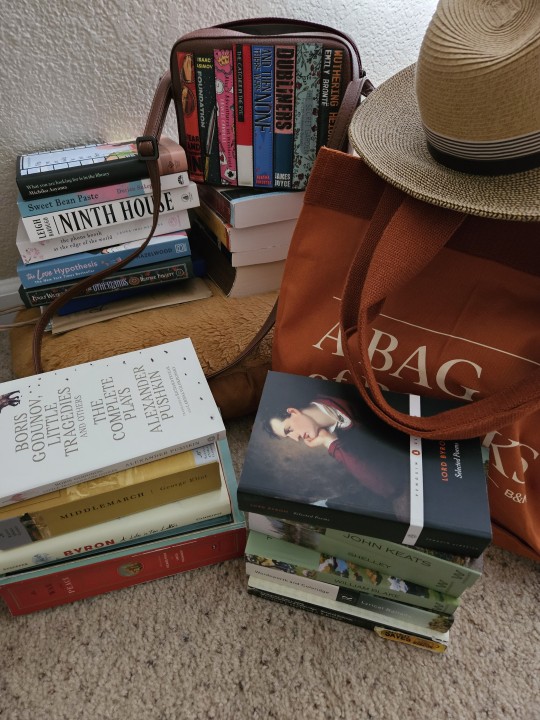

4.5.24 | I love April. It's always a busy, blooming month full of poetry & writing projects, spring cherry blossom festivals & weekend trips to the coast. Our local farmers' market, we affectionately call "night market," is returning to our nearby park & I can't wait for those summer evening picnics. The geese have arrived at our pond with another batch of little goslings. "There are chicks & ducks in the world again." How lovely is this spring. ♡ 𝑁𝑜𝑒𝑙𝑎𝑛𝑖
𝑂𝑛 𝑚𝑦 𝑚𝑖𝑛𝑑
▪︎ Finish 𝑃𝑒𝑟𝑠𝑢𝑎𝑠𝑖𝑜𝑛 review ▪︎ War & Peace up to Book 2 Part 2 ch 14 + discussion notes ▪︎ Go over Middlemarch tabs + notes, annotation key ▪︎ Ninth House readalong discussion ch 1-7 ▪︎ Wordsworth Lyrical Ballads + selected poems, romanticism focus
45 notes
·
View notes
Text
In the Breeze Of The Autumn Leaves - Chapter 1 - Smother

Read here or on AO3
Taglist: @jimothybarnes @em0bussy @creatura-theanarchist Summary:
In a misty, rain-soaked morning, you encounter a mysterious stranger at a fog-laden bus stop. Clad in a striking red coat, the man—Copia—offers his umbrella and a glimpse into his world as a satanic cardinal. As you navigate the weather and engage in awkward yet meaningful conversation, an unexpected bond forms, one that feels destined to alter the course of your day—and perhaps your life
Word count: 6,347
It was one of those days. The ones that made you groan with anguish when your alarm blared. One of those days where not even your puppy’s kisses could force you into a better mood. One of those days when class started at 9 a.m. but to your surprise the moment you opened the curtains and peered outside; you were greeted by an unexpected sight – a thick, swirling fog that seemed to have descended upon the world overnight. It wrapped itself around the trees and houses, obscuring everything in a milky haze. The weather had cast a hazy spell not only on the world outside but on your own senses as well. As you stood there, taking in the surreal sight, you became acutely aware of the throbbing ache in your head. With a sense of trepidation, you brushed your feeble hand against the deliquescent window, the condensation forming small, ephemeral rivers under your touch.
The fog had a way of captivating your imagination, much like the works of Coleridge and Wordsworth, two literary titans who had found a permanent place on your endless reading list. As you gazed out at the mist-shrouded world, it stirred a longing for the poetic and the mysterious, the very essence of these authors' writings.
Just a glance behind you laid Juno, you found her nestled cosily underneath her favourite blanket in her bed (which was propped right next to your bed) – it was yours when you were barely able to walk and speak, and now you couldn’t help but donate it to your little furry companion. She looked like the picture of contentment, her soft snores filling the room with a soothing rhythm. She occasionally twitched and whined in her sleep, a testimony to her puppyhood.
But what caught your attention, and brought a smile to your face, was the sight of Juno resting her tiny puppy head on her beloved teddy bear. It was a gift you had given her when she first arrived home. She had taken to it immediately, and since then, she was rarely seen without her faithful teddy bear by her side. It was a source of comfort and security for Juno, a symbol of your enduring bond. As you watched her snuggle against the softness of her beloved bear, you couldn't resist the urge to lean down and place a gentle kiss on her forehead. It was really the least you could do, she was such a loyal companion.
You noticed yourself breaking into an even wider smile when her tail gave a little wag in response as if to affirm the affection you hold towards her.
You turn, leaving the pup to her peaceful slumber. After making sure her water bowl was full you tiptoed out of the room, making a silent promise to return for her evening walk once the day's classes had concluded. As you ventured further into the apartment, you slung your backpack over your shoulders, feeling its familiar weight settle against your back. It was a constant inanimate companion, carrying the weight of your books, notes, laptop, and the knowledge you sought to acquire.
Stepping outside, you were met with a profound change in the atmosphere that sent shivers down your spine. The air, though heavier, possessed an almost intoxicating quality, like a fine mist of enchantment that clung to your skin. It wrapped around you like an embrace, caressing your senses with its cool, dewy tendrils. Each inhalation was a delicate dance as you tasted the earthy sweetness it carried. It was as if the very essence of the hidden world had been distilled into this fog, a blend of earth, moisture, and an ineffable magic that held you captive. The scent was so captivating that you couldn't resist taking deep, deliberate breaths, allowing it to fill your lungs and awaken your senses. You had hoped that the air would whisk away your grogginess.
The descent of the haze had cast a spell not only on the world outside but also on your own perceptions. As you ventured further from your sanctuary, you felt its influence on your consciousness. You couldn't help but become acutely aware of the persistent ache in your head, a throbbing reminder of the atmospheric changes. It was as if it had seeped into your mind, clouding your thoughts and casting a dreamlike quality over your surroundings. Each step you took was a deliberate and sensory experience as if you were navigating through a realm of half-formed dreams.
The dew-kissed path beneath your feet added to the sensory symphony, its surface cool and slightly yielding, like a plush carpet that cradled your steps. The tiny droplets that clung to the blades of grass glistened like liquid diamonds in the soft, diffused light of air. The visibility was limited to just a few metres, and everything beyond that was lost in a sea of grey ambiguity.
The empty bus stop stood as a solitary sentinel in this misty landscape, a place of arrival and departure, where the past met the future. The weathered wooden bench, now damp to the touch, welcomed you as you slouched against it, pulling your jacket tighter around you to fend off the chill.
You were lost in the grasp of your music blasting through your headphones, unaware of another person's presence until a voice broke through the eerie silence. The fog made it difficult to read the sign, and you turned around to see a stranger standing before you, clad in red, seeking directions.
"Um…excuse me? Is this the…bus stop for Route 12? I can’t see the sign properly," the voice, laced with uncertainty, reached your ears. You adjusted your headphones, allowing them to rest against your neck.
"Ah, yes, should be," you replied, your voice carrying a touch of contrasting confidence. Your gaze met that of the stranger, a man you hadn't seen before. Despite the haze making it difficult to make out his details his appearance was out of place at this early hour and remote bus stop. His scarlet overcoat and hat gave him an air of mystery as if he were a character from a noir film rather than a fellow passenger.
The area around his eyes seemed perpetually shrouded in shadows, casting a mysterious allure over his features. Dark and hazy, those enigmatic eyes bore witness to a hidden world of secrets and contemplation. Their depths held a complexity that was both intriguing and inviting, drawing you into the depths of his thoughts and emotions.
What truly captured your attention, however, were his heterochromatic eyes—one a pristine shade of alabaster white, the other a mesmerizing emerald green. This striking duality added an air of enchantment to his gaze as if he carried a piece of both the ethereal and the earthly within him. The white eye held an enigmatic purity, like freshly fallen snow in a moonlit forest. It seemed to gaze into the realms of the unknown with a serene wisdom as if it had witnessed the passage of centuries. On the other hand, the green eye was a vibrant testament to nature's beauty, shimmering like the leaves of a dense forest. It sparkled with a glint of curiosity that danced like dappled sunlight through the trees, inviting you to explore the depths of his soul.
A gentle rumble in the distance signalled the approach of a rain shower. You glanced at your backpack, a sudden realization filling you with dread: you had forgotten your umbrella. The decision before you was now clear – return home to retrieve the forgotten item and miss your bus or brave the impending rain and get wet.
"Why are you like this?" you muttered to yourself, half in exasperation and half in resignation. It was a question you often posed, a reflection of your tendency to prioritize the present moment's comfort over future convenience. Of course, you forgot your umbrella on the only day it seemed it was going to rain.
With a reluctant sigh, you made your choice, silently cursing the unpredictable nature of life and weather as you stood there, waiting for the bus to arrive. The droplets began teetering down larger and bigger. You desperately looked around for some shelter, a tree or an awning, anything to protect you from the impending rain. But in the fog's embrace, everything seemed elusive and distant.
The raindrops grew heavier, creating a steady percussion that echoed through the misty urban landscape. As you navigated through the wet streets, lost in your thoughts, the stranger's voice broke through the ambient sounds. Their nasally and unsure tone carried a surprising warmth, a hint of genuine sympathy that resonated with the melancholy of the rainy day.
"Would you perhaps... like to share my umbrella?" the stranger offered, their eyes reflecting a sincere willingness to provide solace in the midst of the downpour.
Caught off guard by the unexpected kindness, you turned to face them. The umbrella, a simple yet profound gesture, was extended towards you, creating an unspoken pact in the rain-soaked anonymity of the city.You turned to look at him, surprised by the unexpected offer. It was a gesture of kindness in the midst of uncertainty. Not like you had much choice now, it was either that or get soaked. You stared at him once more and concluded that he didn't seem to have any ill intentions, and his eyes, despite the sheer strangeness of them, held a genuine sincerity.
"Ah, thank you," you replied, relief washing over you as you accepted the offer. The stranger extended the umbrella towards you, and you huddled beneath its protective canopy as the rain intensified. The two of you stood there, side by side, awkwardly shuffling around in the rain.
"It's…no problem really," the stranger said, his voice warm despite its initial uncertainty. "I've…been there."
The rain continued to fall, and you heard the gentle thudding against the fabric of the umbrella. But it was fine. You no longer had to worry about getting to class late or arriving soaked and bedraggled.
“So uhm…lovely weather we’re having.” was the only thing you could think to blurt out. You internally cringe at how dumb and cliché that sounded. You didn’t particularly enjoy small talk, but you didn’t know how to make this any less awkward. Your thoughts drifted back to Juno, and how snuggly she seemed before you left her that morning. You wished you could lay in bed with a hot chocolate and a blanket just watching your favourite show, but alas, life had other plans.
“Heh, lovely indeed, if you're a fan of fog and rain. It's got a certain cosy charm, don't you think?” was the response of the man. He was also clearly trying to make you feel less awkward. His left hand, the one adorned with elegant black gloves was gripping the handle of the umbrella and fidgeting restlessly with it.
“Oh..yes yes for sure. It’s…nice.” You continued. You shuffled your feet a little, as you notice the way the water puddled around them.
“Well, 'nice' might be one way to describe it. So, are you from around here?” was the question that followed from the man.
“No…I just moved here.” was your answer as you shiver slightly from the chill in the air “Like a month ago.”
“Ah..I see. University student, I presume? Many of the younger folks who move here are uni students.”
“Yeah yeah, exactly” you mutter once more, pulling your jacket a little bit closer to you. You started to regret not getting a raincoat or at least a scarf. When will this darn bus arrive?
“What are you studying? Wait uhh…let me guess…Computer science?”
You shake your head, in genuine surprise.
“English,” you say.
"English, huh? That's interesting! I wouldn't have guessed that, but it's great that you're pursuing what you're passionate about. Any favourite authors or books you're really into at the moment?"
“I—” You struggle with listing anything. Your frustration was palpable as you searched your brain to come up with a response. You couldn't understand why it was so difficult to think of an author or book you were currently into. It was as if the dense fog had also settled in your mind, obscuring your thoughts and memories.
Before you could answer you notice a faint boxy outline. A mustard bus with a luminescent sign saying “Route 12” pulls out in front of you. The doors open to the side, and you move to board. As the stranger waddled onto the bus behind you, the atmosphere shifted from the misty bus stop to the confined space of public transportation. To your dismay, it was already pretty full. You supposed that more people chose to use the public transport system instead of walking or biking that morning.
The interior was bathed in a subdued, artificial light that contrasted starkly with the foggy outdoors. The soft, muted hum of the bus's engine provided a constant undertone, which oddly enough usually served as a reassuring reminder of the vehicle's constant motion.
Passengers occupied the narrow rows of seats, some engrossed in their smartphones or books, while others gazed absently out the obscured windows, their expressions ranging from weariness to contemplation which made the bus seem more like a transitional space, a liminal zone where individuals retreated into their thoughts.
There were only 2 sets of seats that were free. The seats, upholstered in faded, patterned fabric, bore the marks of countless commuters, showing signs of wear and tear. You slid into the innermost seat, near the window, your view obscured by the thick brume clinging to the glass. It served as a barrier between the insular world inside the bus and the enigmatic world outside. You turn around, not before you notice the stranger from earlier looking around.
“You can sit next to me if you’d like”. you motion. You notice him smiling before he hurriedly puffed out a “thank you.”
As he settled in next to you, you couldn't help but notice the smudged, dark makeup circles under his eyes. His medium brown hair, neatly combed back, spoke of a certain effort put into his appearance despite the early hour. You just sat near him, attempting to stare out the window like your usual hobby during the morning bus ride when you simply didn’t feel like walking. But you found your attention being hogged by the world inside the bus.
Its interior was infused with a melange of scents—subtle traces of cologne, the aroma of coffee carried by a fellow passenger, and a faint, underlying scent of worn fabric and the warmth of human presence.
Despite the mundane backdrop, there was a palpable sense of anticipation in the air, a collective energy as everyone aboard headed toward their respective destinations. It was a morning tableau, a snapshot of daily life in transit, where strangers briefly intersected before branching off into their own separate narratives.
“So where are you heading?” you ask, grateful you’re no longer shivering.
“University library. I got uhh..some books to return. Some research to do.”
“What are you researching on?” curiosity piqued.
“Medieval history, plague science. That stuff.” was his response. You couldn’t help but notice his accent, how it was so nasally yet unique. How his inflections rise and fall with every word he speaks.
"That sounds really cool, albeit a bit dark with the plague science part," you reply, trying to engage in the conversation despite the close quarters. He does look like a guy who studies in that sort of stuff, with his pencil moustache and sideburns "Medieval history must be quite fascinating. Are you a historian?"
“Ah no, just researching. For a project I’m working on.”
“Ahh…I see” you mutter.
“Yeah…I like that sort of stuff. I find the medieval era…molto molto interessante. Si, si.”
You weren’t sure if he actually just spoke Italian just there, or if the sensory background was interfering with your hearing.
You clearly must've shown your surprise in your looks because he automatically shuffled, a subtle awkwardness accompanying the movement.
“Ah, sorry, I tend to switch to Italian sometimes hehe” was his awkward response.
“You’re Italian?” you ask.
“Ah..no. I can speak it. I spent some time in Italy. My brother speaks it better than me, however.”
"So, spending time in Italy, that's fascinating. Must have been quite an experience," you comment, trying to keep the conversation flowing.
"Yeah, it was. I stayed there for a few months, mostly in Firenze and Rome," he replies with a nostalgic smile. "Beautiful places with rich histories. It really ignited my passion for medieval history and art."
You nod in agreement, appreciating his enthusiasm for the subject. "I visited not too long ago. Only for a week though. But the art and history there are incredible. I really want to go to Rome someday though.”
He seems to warm up to the conversation now, perhaps realizing your genuine interest. "You should definitely go to Rome if you get the chance. The food is amazing too, of course," he adds with a chuckle.
“Oh no, definitely” you add.
“So…about this project?” you wondered.
“Ah well…I don’t know how to explain this. It’s…not exactly something typical.”
“Does it have to do with your makeup? Which, by the way, it’s very cool. Weird. I like it.”
“Ah…grazie, grazie. Um. Sort of. I’m…a Cardinal”.
“Wait what?” Looking at him, he did actually look like a Cardinal. The red coat and biretta in his hand. But you weren’t aware of any catholic cardinals in your area. Don’t they live in Rome? That would explain why he was in Rome.
“Not a catholic cardinal” he continues.
Oh. That makes more sense. Until it didn’t. You weren’t aware of any other religion that had Cardinals.
“What kind of cardinal are you then?”
“Satanic Cardinal. Don’t worry I’m not going to sacrifice you.”
"Satanism, huh?" you respond, your curiosity piqued. "I've actually read a bit about it. It's quite intriguing as a religion, isn't it? Despite all the harmful stereotypes, I've found it to be rather different from what people typically think. Not that I've met many Satanists before."
The man smiles appreciatively at your open-mindedness. "Yes, it's definitely a misunderstood belief system. We don't fit the stereotypes that often get portrayed in the media. It's all about individualism, personal growth, and critical thinking. And yes, the face paint is part of the aesthetic."
“Pleasure to meet you then, Cardinal” you politely extend your hand.
“Oh no, just call me Copia.” He shakes your hand. He was half expecting you to give him a couple of dirty looks after he announced himself as a satanic Cardinal. But he was pleasantly surprised when you didn’t. He took your bare hand with both his gloved ones. He felt so warm against your freezing fingert
The bus came to a halt, and you both stood up, ready to disembark. The university campus awaited, and the rain had mercifully reduced to a drizzle, making the impending walk to class more manageable. As you stepped off the bus, Copia's presence was a curious blend of warmth and enigma. The satanic cardinal's umbrella, now a familiar companion, shielded you from the residual raindrops as you traversed the campus grounds.
"Thank you for your companionship," Copia spoke softly, his words carrying a sincerity that resonated beyond the mundane context of a bus journey.
"Thank YOU for the umbrella. I would've gotten drenched without it," you replied, grateful for the unexpected assistance from this intriguing figure.
"Ah, really, it wasn't a problem. Just trying to help whenever people need," Copia humbly remarked. The contrast between the enigmatic cardinal and the casual student setting was oddly charming. Together, you ventured into the university, a student and a satanic cardinal, an unlikely duo brought together by the chance encounter on a rainy day.
As you settled into your morning class, you noticed the seemingly quieter lecture hall which was normally bustling with students engaging in discussion and queries. It just felt awfully subdued that day, as if everyone collectively decided to take the morning off. The lights were also on, blaring on your face like the second coming of Christ as the light coming in from the many windows simply wasn’t enough.
Your professor delved into the intricacies of Shakespearean tragedy, as is typical with English class. What was usually a class with eager students and discussions of tragic flaws, conflicts, and catharsis that day was just the professor's ramblings and musings. Not that they weren’t interesting, but it was one of those days you found yourself mentally drifting into a different realm, pondering the enigmatic figure who had shared the bus with you. The kind stranger who offered you an umbrella and his unconventional identity challenged your preconceived notions, much like the complex characters in Shakespearean tragedies who grapple with their own inner conflicts and moral dilemmas.
You chuckle as you reminded yourself of Doctor Faustus, a play you had studied. Dr. Faustus, with its haunting exploration of ambition and the human condition, seemed to resonate eerily with your own recent experience. The stranger on the bus, with his enigmatic aura and the unexpected kindness of offering an umbrella, felt like a character straight out of Marlowe's world—a figure both fascinating and unsettling, whose true nature remained shrouded in mystery.
Your thoughts wandered back to that moment on the bus. The stranger had a certain presence, an air of knowing something profound, much like Mephistopheles when he first appears to Faustus. You had sensed a depth in his eyes, a hint of wisdom mixed with sorrow, as if he too had wrestled with existential questions and perhaps made choices that led to unforeseen consequences.
As the professor’s voice droned on about Hamlet's hesitation and Macbeth's ambition, you couldn't help but draw parallels between these classic characters and the stranger. Like Hamlet, you found yourself questioning the nature of reality and the motivations of those around you. Like Macbeth, there was a sense of being on the brink of discovering something life-altering, a step away from a path that could change your life forever.
However you could feel…something tragically off today.
It wasn't just the physical emptiness of the room that weighed on you; it was the emotional void that had settled in your heart. You longed for the lively debates, the shared excitement of literary discoveries, and the comfort of knowing that you were part of a community of like-minded individuals. But on that day, all of that seemed a world away.
As you sat there, contemplating the emptiness around you, you couldn't help but wonder if, somewhere out there, there was someone who felt the same way. Someone whose presence could fill the void and bring back the sense of belonging that you craved.
“Hello again,” you greeted him softly, fingers lightly tapping against your thigh, a habit that brought you a sense of comfort. His presence in the library felt like a little spark of familiarity in the midst of the academic world. You immediately noticed he wasn’t in the silent part of the library—maybe he didn’t know a quieter section existed.
“Ah, hello again, stranger from the bus,” he replied, glancing up from his stack of books. His lips broke into a smile, his fingers absentmindedly fiddling with a small button on his coat. His face paint was neatly arranged, perhaps touched up since you saw him last.
“Mind if I join you?” you asked.
He nodded as he cleared away some books from the oaken table. You settled on the seat in front of him, taking out your laptop and paper.
“How’s research going?” you inquire, eager to finally get to know someone.
“Good, I found some excellent references on Plague Doctors.”
“Ooh” you go clearly intrigued. “ Do tell me more. I barely know shit about the black plague.”
Copia’s eyes brightened with excitement, his fingers tapping rhythmically on the table as he leaned in eagerly. "Oh, plague doctors were fascinating figures during the outbreaks! They were these strange, almost ominous protectors, draped in long, dark robes that covered them from head to toe. But the real iconic feature was their masks—the ones with the long, beak-like noses. These weren’t just for show; they believed the beak, stuffed with herbs, spices, and even vinegar, would filter out 'miasma,' the foul air they thought spread the disease."
He barely paused, his words flowing faster as he got deeper into the details. "And yes! They carried canes as part of their toolkit—more than just walking sticks. These canes allowed them to keep a distance while examining the sick, especially the swollen buboes. It was their way of avoiding direct contact because they thought touching the infected would spread the plague even faster."
You couldn’t help but jump in, intrigued by this detail. "Wait, they really used canes for that?"
Copia nodded enthusiastically, bouncing slightly in his seat. "Absolutely! It was a crucial part of their whole appearance. The cane acted almost like an early form of protective distancing. It let them poke and prod without getting too close."
Curiosity bubbled over as you asked, "Did the miasma theory actually work?"
Copia paused, a grin spreading across his face as he considered your question. "Not really, at least not in the way they thought. The herbs in the masks wouldn’t have stopped the actual spread of disease, but the distance they kept probably helped. They were working with the knowledge they had at the time, which wasn’t much. But it’s fascinating, right? Their whole existence, wrapped up in superstition and fear, and yet they were symbols of hope too." Copia leaned forward slightly, placing his head on his gloved hands considering your question. "The concept of miasma, as they understood it back then, was more of a belief than a scientifically proven method. In reality, these plague doctors were working with limited knowledge of how diseases spread. Their efforts to diagnose and treat patients from a distance were based on the idea that avoiding direct contact with the sick and inhaling foul air could prevent infection.”
“We have discussed The Masque of the Red Death by Edgar Allen Poe in one of my classes. It’s not exactly the same I know. But. Maybe the Castle-“ you trailed off.
Copia continued to lean in, intrigued by the connection you were making. "Indeed, the castle in that story serves as a symbol of the illusion of safety and the false sense of control. Prince Prospero believed he could shut out death, much like the plague doctors believed they could ward off disease by wearing their masks and robes."
You continued, "And just as the revellers at the masquerade ball are ultimately powerless in the face of the Red Death, the efforts of the plague doctors were often in vain. It's a haunting reflection of the human tendency to seek refuge from mortality, even when such attempts are based on superstition rather than scientific understanding. It's a recurring theme in literature, isn't it? The struggle against the inevitable, the desire for immortality, and the harsh reality that no one can escape death. This is dragging on I’m sorry. It’s just funny how I just met you and we’re talking about the bubonic plague and death and-“
“It’s alright, I’m glad you found this interesting” he laughs “What about you? What are you working on?”
"Oh, just some essay about linguistics. It’s difficult to explain.”
Copia leaned back in his chair, still intrigued by your discussion but ready to shift gears to a different topic. "Linguistics, huh? That sounds pretty interesting, even if it's a bit hard to explain. Anything specific you're focusing on in your essay?"
You thought for a moment, considering how to describe your topic. "Well, it's kind of about how language can shape our perception of the world and influence our thoughts. You know, like how different cultures have words for concepts that might not even exist in other languages, and how that can affect the way people think about those concepts."
Copia nodded thoughtfully. "Ah, so you're delving into the power of words and how they shape our understanding of reality. That's some deep stuff."
Yeah, exactly!" you replied, relieved that he seemed to grasp the essence of your research. "It's fascinating how something as seemingly simple as language can have such a profound impact on our lives and the way we see the world."
Time slipped away as you and the Cardinal delved into your respective research. Occasionally, you'd pause to stretch your legs but for the most part, you were both engrossed in your work. Despite the initial awkwardness of your encounter on the bus, you had discovered a surprising intellectual connection, and the library had become an unexpected meeting ground for your shared interests.
At one point, as you were lost in thought, Copia leaned over and asked, "So, have you come across any particularly interesting findings in your research?"
You set aside your laptop for a moment and leaned in, eager to share your insights. “Actually, yes. I was reading about how certain languages have words that capture very specific emotions or experiences that might be hard to express in English. It’s absolutely fascinating how much a single word can reveal about a culture. For example, there’s a word in Swedish—*fika*—which means to take a coffee break, but it’s not just about the act of drinking coffee. It’s about the experience of sitting down with friends or colleagues, having a conversation, sharing a moment. The social connection is at the heart of it. There’s no real equivalent in English, and that’s what makes it so interesting.”
Your hands gestured excitedly as you dove deeper. “It made me think about how language isn’t just a tool for communication—it shapes how we think, how we perceive the world around us. In English, we might say ‘let’s grab coffee,’ but it doesn’t carry that same weight of *fika*, where the break is just as important as the drink. It’s a small window into Swedish culture, where there’s a focus on slowing down and connecting with people.”
Copia nodded along, clearly intrigued, his fingers tapping lightly on the table as you continued.
“And then there’s a Japanese word I came across recently—*komorebi*—which describes the sunlight filtering through the leaves of trees. Can you believe there’s a word for that specific experience? In English, we’d probably just say ‘sunlight through the trees,’ but it doesn’t carry the same poetic weight. In Japanese, *komorebi* evokes this almost spiritual moment of tranquility and beauty. It’s like language is preserving a fragment of a deeply personal experience that might otherwise slip away.”
You paused briefly, catching your breath before moving on, your fingers lightly tapping against your arm. “Or take the German word *schadenfreude*. We don���t really have a precise word in English for the feeling of pleasure derived from someone else’s misfortune, though we understand the concept. But in German, it’s encapsulated in this one, sharp word. There’s something about the way languages can capture emotions—especially the ones we don’t always talk about—that fascinates me. Like, German also has *Fernweh*, which translates to something like ‘far-sickness,’ or the longing to be somewhere far away. It’s a deeper feeling than simple wanderlust—it’s almost a kind of homesickness, but for places you’ve never been.”
Copia’s eyes widened as you spoke, and he leaned in slightly, clearly drawn into your passion for the subject.
“And then,” you continued, your enthusiasm bubbling over, “in Portuguese, there’s this beautiful word—*saudade*—which refers to a profound sense of longing for something or someone that’s gone, but it’s more than just missing someone. It’s this deep emotional state of nostalgia and yearning, often for something that may never return or for something that maybe never even existed in the first place. It’s like longing for a time or place that exists only in your memory. I mean, how do you even begin to explain *that* in English? We just don’t have a word that encapsulates all those layers.”
Copia nodded, his eyes flickering with interest as he fiddled absentmindedly with the edge of his sleeve. You noticed and smiled inwardly, feeling a kind of quiet understanding between the two of you.
“And then there’s the Inuit language, which has dozens of words for different types of snow,” you went on, unable to stop now that you had found a rhythm. “In English, we just say ‘snow,’ but for the Inuit, snow isn’t just snow. There’s qanuk for falling snow, matsaaruti for snow that can be used to block a doorway, and pukak for crystalline snow on the ground. Each word holds a specific meaning tied to their way of life, their environment. It shows how language can evolve to meet the needs of the people who speak it, reflecting what’s important in their daily lives.”
You leaned forward, your voice softening with the realization. “Language isn’t just words on a page. It’s a reflection of our values, our environments, and our emotions. It’s like how the Hopi people, a Native American tribe, don’t have a word for ‘time’ in the same way we do. Their language doesn’t frame time as a sequence of past, present, and future events. Instead, they view time as a flow of experiences. That totally shifts how they understand reality compared to us.”
Copia seemed to be absorbing every word, his fingers no longer fidgeting but still as he listened, clearly captivated.
“And don’t even get me started on untranslatable words,” you said with a grin. “There’s this Finnish word, sisu, which roughly means ‘determination’ or ‘grit,’ but it’s more than that. It’s this concept of inner strength, a kind of quiet resilience in the face of hardship. It’s about pushing through even when the odds are against you, and again, it’s tied to Finnish culture and their history of enduring tough winters and challenges. English just doesn’t quite capture that same sense.”
You took a deep breath, smiling a little at your own enthusiasm. “I guess what I’m trying to say is that language is this incredible lens through which we view the world. It can limit us, but it can also enrich our experience of life. By learning words and concepts from other languages, we expand our capacity to understand not just other cultures, but different ways of thinking, of being. It’s like unlocking a new dimension of thought.”
Copia was still watching you, his smile thoughtful, his fingers slowly tracing the edges of his notebook again. He seemed to appreciate your passion for the subject.
“Thank you for sharing that,” he said quietly, his voice warm. “You really have a way of making something as simple as words feel… profound. You should drop by the abbey sometime. We have a library there. Some pretty interesting topics.”
“Really?! I’d love to. Where is it?” you inquire.
“One moment” Copia takes out a piece of cardboard. Eloquently with his cursive handwriting he writes.
The Ghost Ministries
13 Moonlit Path
Willowbrook
“Oh, that’s close to where I live” you say. You are hesitant on giving any more information. After all, you'd only just met Copia that morning, and despite the intriguing conversation, you still had reservations about sharing too much about yourself with a stranger.
“Perfect.” Copia says. “Feel free to drop by anytime you wish.”
“I will…some time for sure” you continue.
The time in the library passed quickly, filled with engrossing discussions, silent companionship, and the occasional exchange of insights with Copia. As you both delved into your respective research, the library served as a sanctuary where your shared interests converged.
The soft hum of scholarly activity surrounded you, punctuated by the rustle of pages turning and the faint tapping of laptop keys. It was a haven of knowledge and exploration, and in the company of Copia, it felt even more enchanting.
But as the minutes turned into hours, a sudden exclamation from Copia broke the tranquil ambience. Startled, you looked up from your work to see him hastily packing his belongings, a look of mild panic on his face.
"Fuck me, I'm late," Copia muttered under his breath, his voice carrying a note of urgency.
You watched in surprise as Copia gathered his books and notebooks with a sense of haste, his movements quick and slightly clumsy in his rush. It was clear that he had just realized he was running behind schedule.
"Are you okay?" you inquired, concerned about his sudden change in demeanour.
Copia looked up, a sheepish smile on his face as he continued to hurriedly pack. "I lost track of time, and I have another engagement I can't be late for. I'm really sorry to cut this short."
You nodded understandingly, realizing that sometimes schedules could be unforgiving. You chuckled softly to yourself. He was so similar to you. Of course, you befriended the one other person with no sense of time.
"No worries," you assured him. "Life happens, and we all have places to be.”
With a final, apologetic glance, Copia bid you a hasty farewell and dashed out of the library, leaving you with a sense of curiosity and the lingering warmth of the conversations you had shared.
You once again started to focus on your own work. Hours slipped away, and you eventually realized it was time to head to your next class. You gathered your things, packed up your laptop, and made your way out of the library.
But as you stepped outside, the skies were still grey and a light drizzle was once again gracing the Earth. You hurriedly opened your umbrella, only to realize that it was Copia's distinctive, black umbrella, adorned with a subtle symbol of the clergy, an inverted cross with an embedded "G".
“I’m so silly” you chastise yourself.
#ghost the band#ghost band#the band ghost#band ghost#ghost fanfiction#ghoulelegy writes#cardinal copia#original character#original animal character#reader and copia are both neurodivergent#in the breeze of the autumn leaves
15 notes
·
View notes
Text



On October 10th 1802 the Edinburgh Review was first published “to erect a higher standard of merit, and secure a bolder and purer taste in literature, and to apply philosophical principles and the maxims of truth and humanity to politics”.
Wandering around Edinburgh I like to connect the names of streets with their respective reasons and faces, West Port, was the west gate into the city, Princes Street, not Princess Street, as many believe was named after King George III’s two eldest sons. And Jeffrey’s Street, a favourite amongst tourists and photographers alike is named after Francis Jeffrey a struggling lawyer, who on this day in 1802 joined with Sydney Smith, Henry Brougham, and Francis Horner to establish a liberal critical periodical, The Edinburgh Review.
Jeffrey served as editor for the publications first 26 years, also contributing essays on criticism, biography, politics, and ethics. Often his work was satirical, he is also remembered for being a romantic, his critical attacks on William Wordsworth, the other Lake poets, and Lord Byron were often filled with satire, a thing I think us Scots excel at to this day.
In 1830 the Whig Party, which The Edinburgh Review had powerfully supported, came into office; and Jeffrey, who had eventually built up a reputation as an advocate, was appointed lord advocate. As a member of the House of Commons, he introduced the Scottish Reform Bill in 1831. In 1834 he was made a judge and assumed the title of Lord Jeffrey.
Of the other three involved in the launch of the review, the most well known is Henry Brougham, he was its foremost contributor, with articles on everything from science, politics, colonial policy, literature, poetry, surgery, mathematics and the fine arts, Brougham Street running into Brougham Place are named in his honour.
Edinburgh man Francis Horner contributed fourteen articles to the journal during its first few years.
English born Sidney Smith edited the first edition ,he had studied moral philosophy under Dugald Stewart as well as medicine and chemistry. He also preached in the Episcopal chapel, and lived in Edinburgh for five years, he ended up buying the Town House at 18 Buccleuch Place from Jeffrey where a plaque tells us that “Francis Jeffrey lived here 1801-1802 and here the Edinburgh Review was founded.
Among famous subscribers to the Edinburgh Review was Thomas Jefferson, who was a founding Father who served as the third president of the United States from 1801 to 1809, pics three and four are correspondence between him and his stationers in November 1823 discussing that he would like to continue his subscription.
11 notes
·
View notes
Text
tagged by my dear @samstree tyyy mwah <3
last book i read: dostoyevsky's white nights
a book i recommend: honestly the brothers karamazov but for something smaller i rec literally anything by james baldwin
a book that i couldn't put down: the left hand of darkness MY BELOVED
a book i've read twice (or more): frankenstein because i wrote a paper on it but also because it fucks
a book on my tbr: generally house of leaves is on my tbr for eons but most immediate are letters to milena and το τριτο στεφανι (the third wedding)
a book i've put down: europe after the rain by alan burns, it was not a good pick for my mood at the time but i'll give it one more try some day
a book on my wish list: too many brother. Too many
a favorite book from childhood: gonna be a massive nerd and say secrets of the swamp by penelope delta i LOVED that book. but also the youngest templar series by michael spradlin my teacher lended me i ate it up it unlocked something in my brain for sure
a book you would give to a friend: the heart is a lonely hunter by carson mccullers. it's. A Book
a book of poetry or lyrics that you own: unfortunately i only have a book of greek love poetry by various poets they need to lower the price of poetry books fr
a non-fiction book you own: the colour of water by james mcbride i studied it in uni this book made me cry so much
what are you currently reading: crime and punishment. hot dostoyevsky summer baby!!
what are you planning on reading next: if it's not something from my tbr then sth from the new wordsworth editions that are ridiculously cheap and pretty or perhaps i'll try to continue moby dick because it's ruining my reputation
tagging @thalassiokhtos @darkside-cookies @somerubberband @staliaofatreides @theklaapologist also everyone actually show me those books boy
#i need to make a storygraph actually i don't remember anything of what i've read#ty jin <333 this was so fun#tag games#samstree
14 notes
·
View notes
Text
I'm unsure if this will help anybody...
But I just wanted to share some of my favorite literary devices to pick apart in books!
Also!! Hello, I'm Alex! I'm 20 and I'm the owner of this little blog. My blog is a safe space for anybody and everybody who needs and/or wants one. I love to read, and I've been doing so voraciously since I could understand what exactly was going on!
In this post (and it is a longer post), I'll be going over different ways that authors/writers/poets/wordsmiths present the imagery and symbolism within their works; as well as a few examples!!
--------Start--------
Literary devices of:
Imagery and symbolism;
Metaphor:
A metaphor is a symbol used to tell a story where it’s a picture that really describes something else. For example:
“And the ships went out into the High Sea and passed into the West, until at last on a night of rain Frodo smelled a sweet fragrance on the air and heard the sound of singing that came over the water. And then it seemed to him that as in his dream in the house of Bombadil, the gray rain-curtain turned all to silver glass and was rolled back, and he beheld white shores and beyond them a far green country under a swift sunrise.” —J.R.R Tolklen, The Return of the King.
In literature, the sea is quite often used as a symbol of death, and with Frodo passing to another shore could be used as a symbol of him passing out of the world. So, this is very much a metaphor for death.
Simile:
A simile is similar to a metaphor, the only difference is that it uses the words “like,” or “as.” For example:
“O my Luve is like a red, red rose
That’s newly sprung in June;
O my Luve is like the melody
That’s sweetly played in tune.” —Robert Burns, A Red, Red Rose
It is making a deliberate comparison between two things.
Pathetic Fallacy:
This is another use of imagery. It can be slightly like a metaphor, but it is something much more specific. For example:
“By th’clock ‘tis day, / And yet dark night strangles the traveling lamp; is’t night’s predominance, or the day’s shame / That darkness does the face of the earth entomb / When living light should kiss it?” —William Shakespeare, Macbeth
“A cold wind was blowing from the North, and it made the trees rustle like living things.” — George R.R Martin, A Game of Thrones
Pathetic Fallacy is when the writer uses the natural world, as in the weather, the landscape to reflect the inner state of the characters in the story.
Allegory:
“The animals were happy as they had never conceived it possible to be. Every mouthful of food was an acute positive pleasure, now that it was truly their own food, produced by themselves and for themselves, not to be doled out to them by a grudging master.” — George Orwell, Animal Farm, chapter 3.
This is the use of symbols and undertones to convey an idea and/or opinion of the writer.
Imagery:
Imagery is another literary device that sets the tone of what we’re reading. For example:
“But who knows what she spoke to the darkness, alone, in the bitter watches of the night, when all her life seemed shrinking, and the walls of the bower closing in about her, a hutch to trammel some wild thing in?” J.R.R Tolkien, The Return of the King.
The image that is depicted here not only describes the character/situation; but also sets the stage for an atmosphere of darkness, and the feeling of being without a choice, the feeling of being trapped, etc.
“I wandered lonely as a cloud
That floats high o’er vales and hills,
When at once I saw a crowd,
A host, of golden daffodils;
Beside the lake, beneath the trees,
Fluttering and dancing in the breeze.” — William Wordsworth, Daffodils.
This is another example of imagery, one that has us think of bright and sunny; maybe even relaxing scenery. This sets a very different tone from the previous quote.
Foreshadowing:
A literary device that is not only limited to books, as it can be in TV shows and movies as well. For example (in the literary context):
The horse brooch from Sommerville and Ross’ The Real Charlotte.
****SPOILER**** In this novel, one of the principal characters, Francy, is eventually killed in a riding accident at the end of the novel. But, throughout the novel there are symbols of horses doing her harm. For example, at one point in the novel she is pricked by a horseshoe brooch which causes her some pain—and so, these little incidents throughout the novel point to her eventual fit.
Also, George R.R Martin’s Game of Thrones is famous for the use of foreshadowing throughout the novels. A great example of the foreshadowing used in this book is the dead stag, which is being dismembered by Taiwan Lannister. Now a stag in the book A Song of Ice and Fire represents the Baratheon family and it is the sigil of the house of Baratheon. So, when we see Taiwan cutting up the stag, that foreshadows the fact that Taiwan’s house, the house of Lannister, will eventually destroy the house of Baratheon.
--------End--------
Post Script: I'm very thankful that you've read this far, and if you have any questions at all please ask me!! I love answering questions, and I'll do my best to be as thorough as I can in my answer. Also, it has been a hot minute since I've read George R.R Martin’s Game of Thrones, so I apologize if I misspelled anyone's name/house!
#literary analysis#literary#reading#booklr#bookblr#book#literary criticism#literary fiction#literary quotes#writng#writers on tumblr#writing#writeblr#writers and poets#writerscommunity#writing community#writing advice#writing ideas#creative writing#on writing#writer#writing inspiration
11 notes
·
View notes
Text



Frankenstein bookshelf update! (And a mini haul of Frankenstein goodies.)
I just recently got back from my study abroad trip to England/Switzerland, and I got a bunch of new editions and goodies to add to my shelf! Specific info under the cut!
For books, I got 4 new editions of Frankenstein, I tried to get editions that I wouldn't normally be able to find in the US. I got the Penguin English Library edition, the Wordsworth Classics edition, an edition in French that I bought while in Geneva, and the MacMillan Collectors edition which I bought from the British Library (but I saw it being sold at other bookstores as well.) As for related books, I bought "Father of Frankenstein" by Christopher Bram, which I bought used from a great queer bookstore in London called "Gays the Word," "Selected Poetry and Prose of Shelley" which I very appropriately bought in Oxford, Mary Shelley's "Mathilda", and Nick Dear's "Frankenstein" script from the National Theatre bookstore where the play was originally performed (if you know me you know my gripes with this play but it still felt appropriate to get it.)
As for non-book items, I added a Frankenstein puzzle which I bought from the game store next door to the House of Frankenstein museum in Bath, a few postcards from the museum as well as their official guidebook, and a super cute lazer-cut book pin from a jewelry store called "Tatty Devine" in London.
I'm very excited with how this shelf has evolved, and it's a full on proper shrine at this point. I feel so lucky to have had the opportunity to go on this trip and collect all these things along the way from my Mary Shelley/Frankenstein pilgrimage. I'm looking forward to sharing more about all the places I got to visit!
#thank you DHL for getting all of my books back safely#i bought a lot of scripts and show programs too#it was a 20lb package of basically just paper lol#i also had a few bits and bobs not pictured here like a hat and button#i cant wait to read all my new books!#frankenstein#frankenstein or the modern prometheus#mary shelley#waateeystein speaks
8 notes
·
View notes
Text
The Meanest Flower
New letter from my old chap Bertie and he starts with a poem:
I remember—it must have been when I was at school because I don’t go in for that sort of thing very largely nowadays—reading a poem or something about something or other in which there was a line which went, if I’ve got it rightly, “Shades of the prison house begin to close upon the growing boy.”
It's Ode on Intimations of Immortality from Recollections of Early Childhood by William Wordsworth.
That guy that looked like somebody who wouldn't break and egg is a famous criminal known as Soapy Sid and that plain girl is her accomplice
While his female accomplice was gratefully embracing his lordship, Soapy Sid substituted a duplicate case for the one containing the pearls and went off with the jewels, the money and the receipt. On the strength of the receipt he subsequently demanded from his lordship the return of the pearls, and his lordship, not being able to produce them, was obliged to pay a heavy sum in compensation. It is a simple but effective ruse.”
And she dared to kiss Bertie!
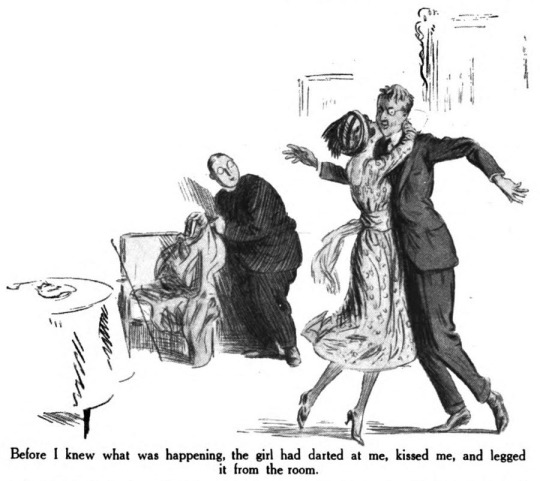
My reaction:
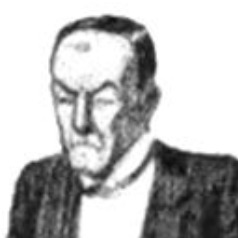
Wooster was so close to marry a criminal but Jeeves saved him again by pickpocketing the pearls. Bertie should be glad that Jeeves does his job properly and has moral sense because Jeeves being so smart, charming and skilled could be a new Raffles.
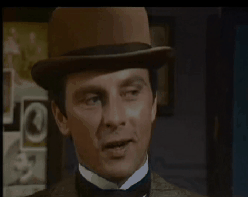
Aunt Agatha has his necklace, Bertie lost money but had the chance to teach manners to his aunt and Jeeves can burn the the bloody cummerbund. More jolly days come in Wooster's future until Aunt Agatha strikes his bachelorhood again. Come on!!! His aroace/gay/queerness can be seen from the International Space Station!!!
For now, I'll leave a part of the poem Bertie remembered:
Thanks to the human heart by which we live, Thanks to its tenderness, its joys, and fears, To me the meanest flower that blows can give Thoughts that do often lie too deep for tears.
#letters regarding jeeves#aunt agatha makes a bloomer#BLOO#jeeves and wooster#reginal jeeves#literature#letters in the underground#aj raffles#a j raffles#bertie wooster#bertram wooster
8 notes
·
View notes